As King Charles III gets set to be officially crowned on Saturday, talk in Wales has turned to his former role of Prince of Wales and where the title fits in a modern Wales with dreams of independence.
During his inaugural speech as King following the death of his mother Elizabeth last year, His Majesty announced that his son William and his wife Kate would take up the titles of Prince and Princess of Wales, sparking renewed debates in the country over whether an Investiture should take place, or even if the role should continue.
“I am proud to create him Prince of Wales, Tywysog Cymru, the country whose title I have been so greatly privileged to bear during so much of my life and duty,” the King, who attended Aberystwyth University for a term ahead of becoming Prince of Wales in a bid to learn Welsh language and culture, said.
“With Catherine beside him, our new Prince and Princess of Wales will, I know, continue to inspire and lead our national conversations, helping to bring the marginal to the centre ground where vital help can be given.”
The then Prince Charles’ Investiture at Caernarfon Castle in 1969 drew protests including Cymdeithas yr Iaith’s non-violent mass protests, and more direct threats – including bombings - from Free Wales Army and Mudiad Amddiffyn Cymru.
Soldiers had to be drafted in to ensure the now King’s safety.
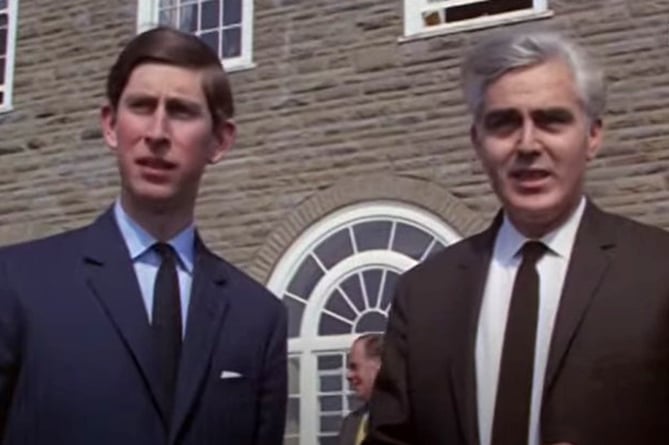
Last year, leader of Plaid Cymru Adam Price said that any decision over the Investiture of the new Prince of Wales should be made in Wales, with several organisations calling for the title and any plans for an Investiture to be put to a public vote.
Independence campaigners YesCymru said: “As an organisation YesCymru states unequivocally that it does not recognise that the English Crown has an executive right to impose a new Prince of Wales upon our nation without consent.
“In a modern democracy the people of Wales, either directly or through their elected representatives, should have input into such a symbolic decision regarding a known historically contentious title.”
The latest poll for ITV in September last year found that 66 per cent wanted William to be titled the Prince of Wales, with just 22 per cent opposed.
When that question was asked three months before on whether the title should continue with no mention of William in the question, just 46 per cent supported its continuation – suggesting that William as a figure is more popular in Wales than the title.
He and his wife have spent time living in Anglesey while William served there as an RAF Valley search and rescue pilot.
The Welsh Conservatives said that “a clear plurality of Wales supports an Investiture of some kind” and that “the honorary title of The Prince of Wales should not be controversial”.
“The position itself is an economic asset, particularly to the tourism industry, in Wales,” the party said.
“Just as UK tourism benefits from the Royal Family to the tune of millions each year, an Investiture will bring in people from far and wide to enjoy the event, adding to the Welsh economy.”
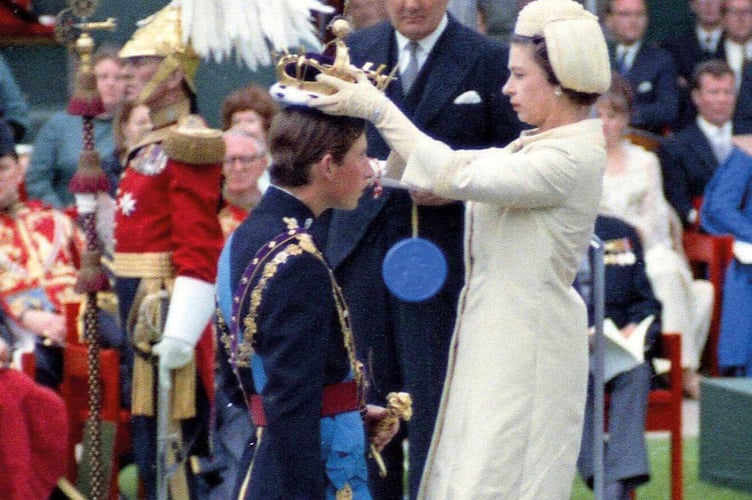
However, almost 40,000 people signed a petition calling for an end to the ‘Prince of Wales’ title.
The petition says that since the days of the Welsh Princes the title has been “held exclusively by Englishmen as a symbol of dominance over Wales”.
The Royal title was originally given to Edward II of Caernarfon and since then it has been held by 21 different heirs to the throne.
“The title remains an insult to Wales and is a symbol of historical oppression and also implies that Wales is still a principality, undermining Wales’ status as a nation and a country,” the petition’s author, Trystan Gruffydd, said.
In October 2022, Gwynedd councillors voted by an overwhelming majority against an Investiture for Prince William, and also in favour of the Prince of Wales title itself being abolished.
In September of last year the campaign group Republic put up billboards around Wales with the message: “Nid does angen tywysog ar Gymru / Wales doesn’t need a prince.”
Welsh Conservative leader Andrew RT Davies criticised the billboards for not being “reflective of Welsh public opinion”.
Former Dwyfor Meirionydd MS Lord Dafydd Elis-Thomas questioned the need to continue with the title of the Prince of Wales following the death of Elizabeth II.
He said that there was “no meaning” to the title, and added: “I think this title will disappear because it doesn’t make any sense for a devolved, democratic country like Wales to have a prince these days.”
Speaking last year after the new King’s visit to the Senedd, Llywydd and Ceredigion MS Elin Jones – a self-declared republican – said that “Investiture is not a constitutional requirement”.
“The Welsh people and the Welsh Parliament can design a modern relationship with the Prince of Wales, based on people not pageantry,” she said.
“If William and Kate want to meet people throughout Wales to learn first-hand of their hopes and concerns, then today’s politicians should free them to do so, rather than encumber them with the controversy of Investiture.
“21st century Wales does not need an Investiture.
“The 21st century monarchy may not want it either.”
It has been reported that William has no plans for a grand Investiture on the scale of his father’s back in 1969, and is “looking forward to spending more time in Wales over the coming years, taking the time to strengthen their relationship with communities in all parts of Wales,” Kensington Palace said.
A new book, Charles and the Welsh Revolt by Arwel Vittle, delves into the history and backlash against the Prince of Wales title and the explosive start to the King’s royal career during his Investiture in 1969.
Aberystwyth was central to the events of that year as Charles spent a period there being taught Welsh history and receiving Welsh lessons from his tutors Edward Millward and Bobi Jones.
Several large protests were held by Welsh students across the campus, and the university buildings were occupied on several occasions, with students also fasting in protest.
With the King’s Coronation set for this weekend, Mr Vittle predicts any celebrations in Wales will be “muted and superficial to say the least”.
In Wales, it appears that support for the monarchy is not as deeply rooted as previously thought, Mr Vittle claims.
A survey conducted on the eve of the Queen’s Platinum Jubilee on attitudes in Wales towards the monarchy revealed a significant divide in attitudes based on identity and language, with a relationship between supporting the principle of monarchy and national identity.
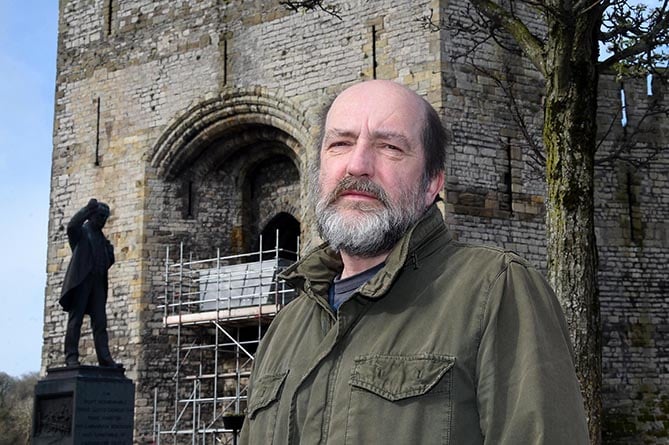
Following the Queen’s death, Charles moved swiftly to proclaim William as the new Prince of Wales and, according to Mr Vittle, this sparked an “angry response amongst Welsh nationalists and republicans, echoing the reaction to the 1969 Investiture.”
Mr Vittle, who tells the story with first-hand contributions from protestors, activists and journalists who covered the events of 1969, casts doubt on the Royal Family’s relevance to Wales.
“It was a febrile time not only with a sustained bombing campaign, but also Cymdeithas yr Iaith’s mass demonstrations and Plaid Cymru getting its first electoral successes,” he said. “I wanted to look at what caused this extreme reaction around Charles’ Investiture, whether it was worth it, and whether it could all happen again.
“Now William’s Investiture plans appear to be on the back burner after Charles’ announcement that he would be Prince of Wales sparked a reaction in Wales that was perhaps more fierce than they expected.
“With the level of opposition, it looks like they’ve had second thoughts about having another grand Investiture here.
“There is a level of antagonism and ambivalence towards the Royal Family within a significant section of Welsh society.
“I think they will be muted to say the least in their celebrations of the King’s Coronation.”
Professor Richard Wyn Jones, of the Wales Governance Centre, believes that something significant has changed in terms of the relationship between Welshness and the monarchy.
“Bonds of loyalty have loosened significantly and the relationship with the Royal Family has become much more distant since 1969.
“This could be exacerbated in coming years, now that the Queen has died and Charles has ascended to the throne.”

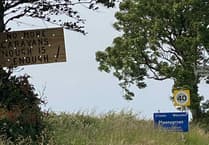
.jpeg?width=209&height=140&crop=209:145,smart&quality=75)

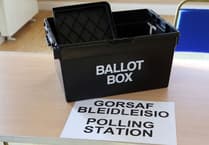
Comments
This article has no comments yet. Be the first to leave a comment.